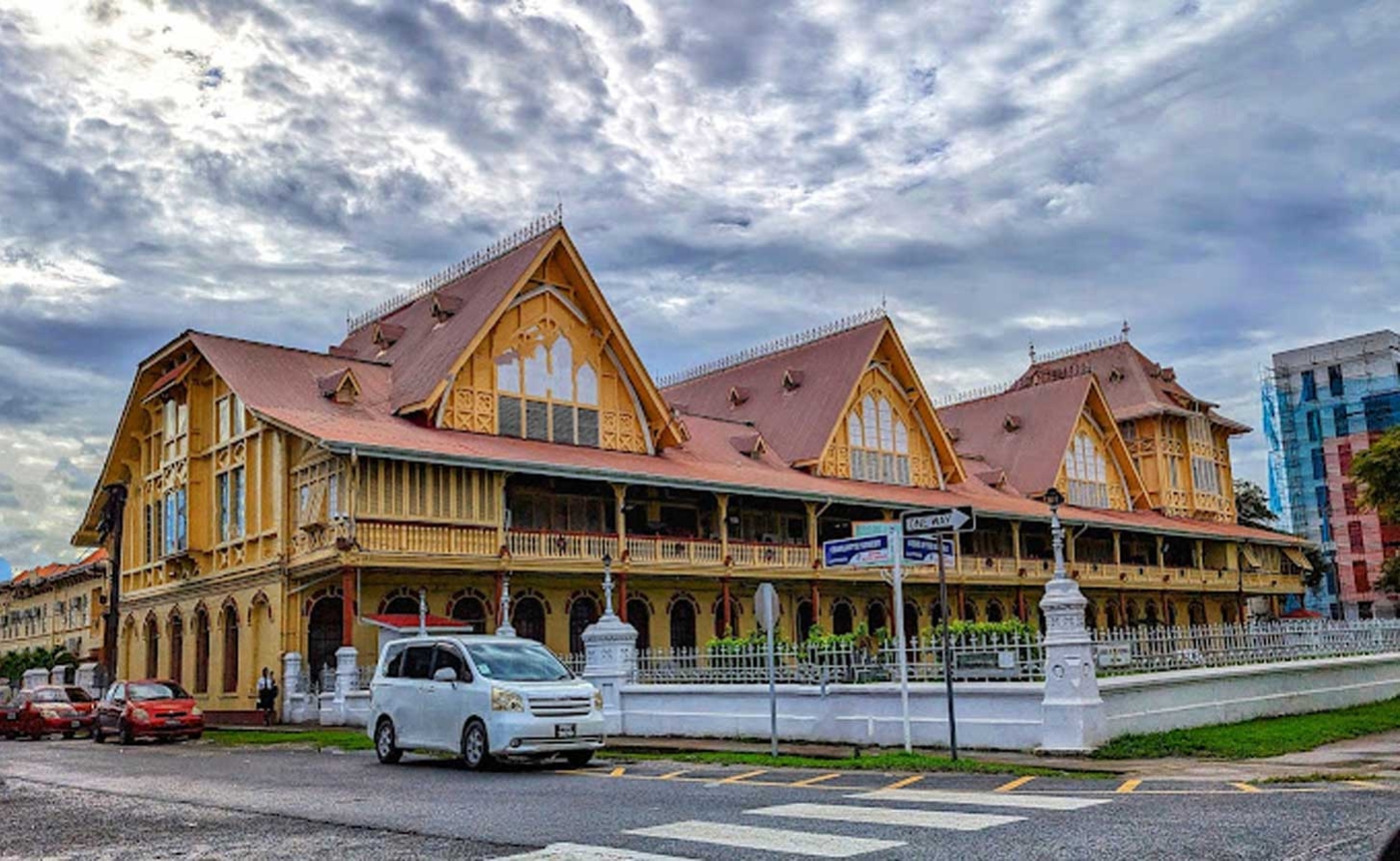GUYANA'S Supreme Court Puts the Brakes on Government's "Land Grab."

GEORGETOWN, Guyana, September 13, 2024 - In a ruling that's sure to send ripples through Guyana's corridors of power, the Supreme Court has effectively told the government, "Not so fast!" in its ambitious plans for the New Demerara River Crossing.
The court's decision, which reads like a masterclass in judicial restraint, has put the kibosh on the government's attempt to seize several parcels of land faster than you can say "eminent domain."
At the heart of this legal tussle lies the government's grand vision for a new bridge and connecting road in Peters Hall, East Bank Demerara. The state, wielding the "Acquisition of Lands for Public Purposes Act" like a magic wand, had hoped to wave away property rights and start building their bridge to the future. But the Supreme Court, in its infinite wisdom, decided to throw a spanner in the works.
The case, involving five notices of application filed by the Attorney General, sought to give the government immediate possession of lands acquired by the State. It's as if the government was trying to put the cart before the horse - or in this case, the bridge before the compensation.
Enter the respondents,Wilfred Brandford, Merlynn Thomas, Joan Stewart, Vashti Fredricks and Pearl Layne represented by the formidable Senior Counsel Roysdale Forde, Dr. Dexter Todd and Mr Smart. These David-like figures stood up to the Goliath of government overreach, and the court listened.
In a move that would make Solomon proud, the Supreme Court not only refused the government's application but also insisted on an expedited trial to determine fair compensation. It's almost as if the judges were saying, "Let's not build bridges before we've crossed them, shall we?"
The court's ruling was crystal clear: the government's application was refused, and the trial "must be expedited to determine fair compensation and a just resolution to the suits." In other words, the court told the government to pump the brakes on its bridge-building ambitions until it can sort out a fair deal for the landowners.
The Court says "while the State has the authority to acquire land, such power is balanced by the necessity of compensation. The use of 'subject to payment" underscores that acquisi:ion is subject to compensation reflecting principles that prioritizes fairness and clarity. The statutory interpretatory rights of the landowner are safeguarded through these stipulations, maintaining the integrity of property rights within the context of compulsory acquisition guaranteed at Article 142 and Article 39 of the Constitution of Guyana. Property rights are fundamental, enshrined in the Constitution, and viewed as critical entitlements of citizenship."
"Granting immediate possession without resolving compensation disputes between the parties undermines the constitutional protections afforded to landowners under Article 142 of the Constitution. It would allow for the taking of property without just compensation, violating both statutory and constitutional mandates, " the Court said.
Hence, resolving the dispute is not merely a legal obligation but a matter of ensuring dignity and equity for the parties in dispute.
But the court didn't stop there. In a move that would make any project manager proud, it also ordered both parties to "take steps to keep up with the case management orders to expedite the determination of the compensation." It's as if the court was saying, "If you're going to build a bridge, let's make sure it's built on a foundation of fairness."
As Guyana watches this drama unfold, one thing is clear: the path to progress is rarely a straight line. Sometimes, it's a winding road that crosses rivers, navigates legal obstacles, and hopefully, leads to a fair resolution for all. In the meantime, the government might want to consider that old adage: good things come to those who wait – and compensate fairly.
This case serves as a powerful reminder that in the grand architecture of nation-building, the rights of individual citizens should never be overlooked. As Guyana looks to its future, it must ensure that its bridges don't just span rivers, but also connect the principles of progress with the foundations of fairness.
The ball is now in the government's court. Will they see this as a setback, or as an opportunity to build not just a bridge, but also trust with the citizens they serve? Only time will tell, but one thing's for certain – this bridge story is far from over, and Guyana is watching with keen interest to see how this tale of concrete and compensation will ultimately unfold.
-30-
